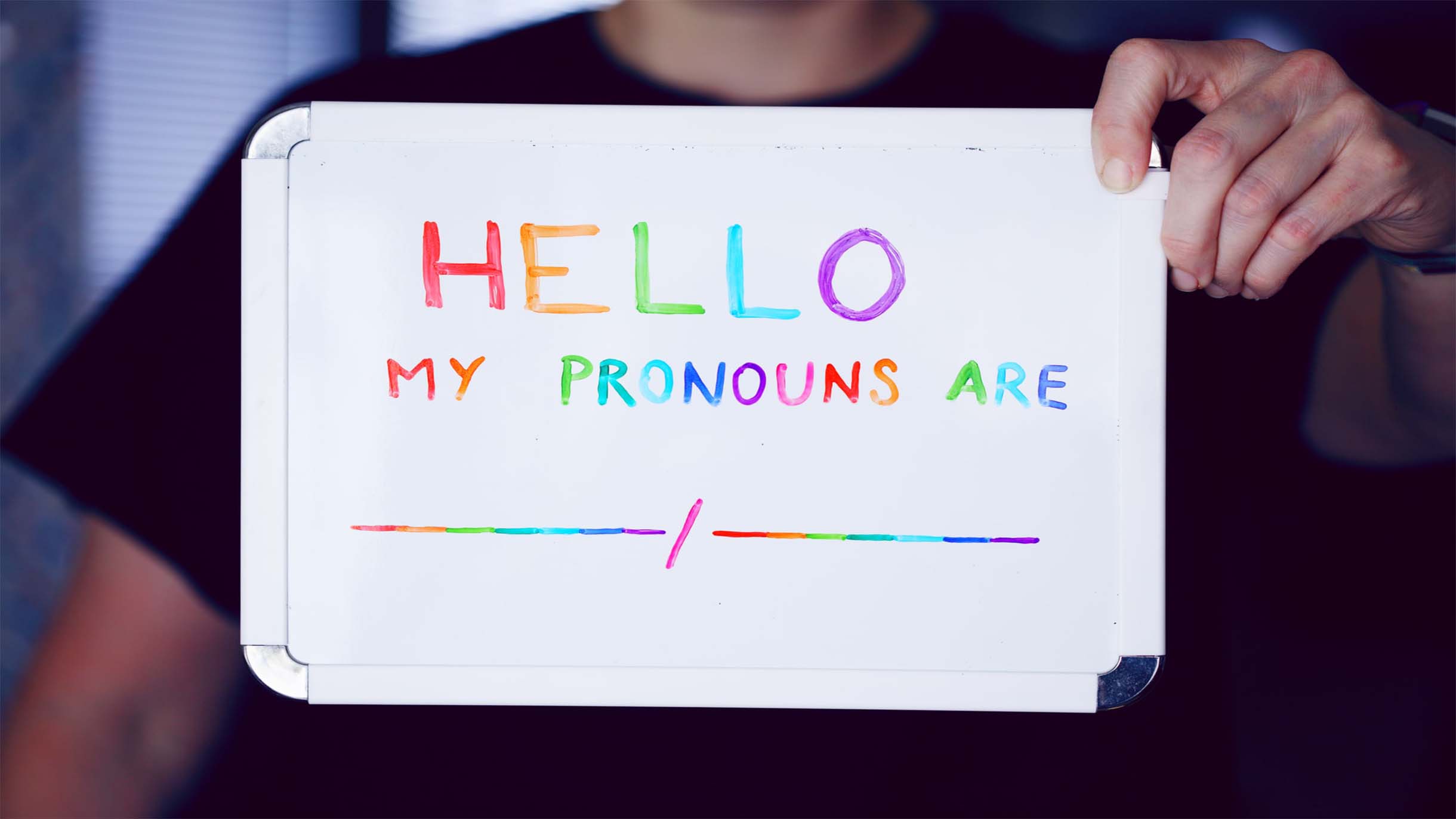I once had an employer who really dragged her feet about using ‘they’ as a singular pronoun. She was a nice person, and not someone you could easily accuse of being uninformed or prejudiced – but she couldn’t look past the fact that it wasn’t ‘grammatically correct’ to refer to someone in this way.
“I don’t know why you’re so bothered,” she said at the time. “I know you’re a writer, but it’s just a word. Does it really matter?”
To me (quite obviously) – it did matter. It does matter. And it’s fair to say her refusal to budge on pronoun use upset far more people who felt their gender wasn’t being represented than a grammatical ‘error’ would have done.
Since then, of course, ‘they’ has been widely accepted as a singular pronoun and is recognised in the Cambridge and Oxford dictionaries, as well as overseas – even if it is still rejected by certain institutions (the Chicago Manual of Style is one example). Language itself (and our understanding and perception of it) is in a constant in a state of flux. But for those of us who communicate verbally, it is our main method of communication – so it’s only right that we reflect on how we harness it.
Whether in our personal lives or in the workplace, the words we use are integral to creating and nurturing positive relationships. In today’s rapidly changing world, it can feel like the goalposts are constantly changing – but this isn’t a bad thing. It just means we need to try a little harder to keep up.
Language is not static: we need to embrace change
Language has always had a life of its own. It has evolved with time, social landscape and shifting cultural attitudes.
Pick up any text from even a hundred years ago and you’ll see that the words we use, the way we refer to certain groups of people, and how we tell stories has changed dramatically – even if many words remain the same.
No one walks around talking in Shakespearean English these days (well, not to my knowledge), but we can still recognise the major changes Shakespeare made to the English language – phrases like ‘bated breath,’ ‘break the ice’ and ‘heart of gold’ – that are still in common parlance today.
Where we come unstuck is when we try to make language static – to refer to the ‘proper’ way of doing things rather than accepting the change and ambiguity.
Like technology, language is always modernising, always evolving. And those who don’t at least try to keep up will get left behind.
Why words matter
Words do matter, and not just because they reflect our ethics and standards – they actually help shape them. How we use language reinforces the kind of society we live in. Whether we want that to be an accepting and progressive society or a discriminatory one starts with the words we use.
For example, gendered phrases like ‘manpower’ and ‘right hand man’ may seem like pretty minor infractions, but they are just one example of how language shapes an entire world around the experience and demands of men. In workplaces where men outnumber women (like the tech industry), these phrases subconsciously push us to imagine men in positions of authority, adding to sexist attitudes in the workplace and discouraging women from applying in the first place.
Inclusive language = inclusive workplace
Whether or not they use the word ‘inclusive,’ most companies would say that they want their teams to be agile, empowered, creative, and to bring their best work to the table. But this only happens if people feel free to be themselves, confident that they won’t be dismissed due to their gender, race, abilities or sexual orientation.
Most decent employers would agree that they want their workplaces to be inclusive, but many fall short. There are a lot of complex factors to consider here, but language is one of the first hurdles many companies stumble over – even when their intentions are good.
The ‘rules’ of inclusive language
You shouldn’t think about inclusive language as a set of rules to follow. It’s about making an effort to change your language for the better – being openminded and unafraid of being corrected when you get it wrong.
In fact, it will probably involve ripping up some ‘rules’ you might have once been taught were ironclad.
But with the help of some of my fellow Secclers, I’ve had a go at creating some ‘guidelines’ (not rules!) to keep in mind:
-
Think people first: No one likes to be defined by their illness of disability. Rather than defaulting to ‘a disabled person,’ say “a person who is disabled”.
-
Respect mental illness and neurodivergence: Don’t mis-use words like ‘bipolar’ or ‘OCD,’ for example to describe the weather or someone who likes cleaning. These are not descriptors or metaphors for everyday behaviour – they are illnesses. Again, you might want to say, ‘she has bipolar disorder’ rather than ‘she is bipolar,’ and be careful about using words like ‘crazy’ and ‘mad’ even to describe everyday situations.
-
Cut down on jargon: Many of us abbreviate words and phrases for ease, especially in our internal teams. But using jargon and acronyms can exclude people who don’t have specialised knowledge of your subject.
-
Use gender-neutral terms: You may think it’s harmless to refer to a group of mixed-gender people as ‘guys,’ but this term assumes the male as the default – and it’s not inclusive of women or non-binary people.
-
If you’re not sure – ask: Many people with hearing loss don’t like being called ‘deaf.’ Similarly, a person who is blind may prefer you to say that they have low vision or need braille, but this won’t necessarily apply to everyone. It’s best to ask someone how they wish to be addressed or referred to. You may think it’s best to just not mention it, but this could mean overlooking additional needs they might have and making them feel dismissed. If you’re not sure what someone’s pronouns are or how they prefer to be addressed/described – just ask. Most people would far rather you reached out to them and asked the question rather than used a term they’re not comfortable with.
It’s important to remember that these are guidelines, and every individual is – well, different. There’s not necessarily a ‘right’ or ‘wrong’ way to refer to someone.
You’re not going to get it right 100% of the time – none of us are. As we’re trying to be more transparent about our diversity and inclusion efforts, we can comfortably admit that we’re not perfect by any stretch.
We still struggle not to say ‘guys’ when addressing a group of individuals, and most of us will admit to saying we’ve had a ‘mad day’ – and, the truth is, not everyone will be offended by that. But we owe it to the people in our lives who feel in any way diminished by our use of language to be a little more aware, and a lot more inclusive.



